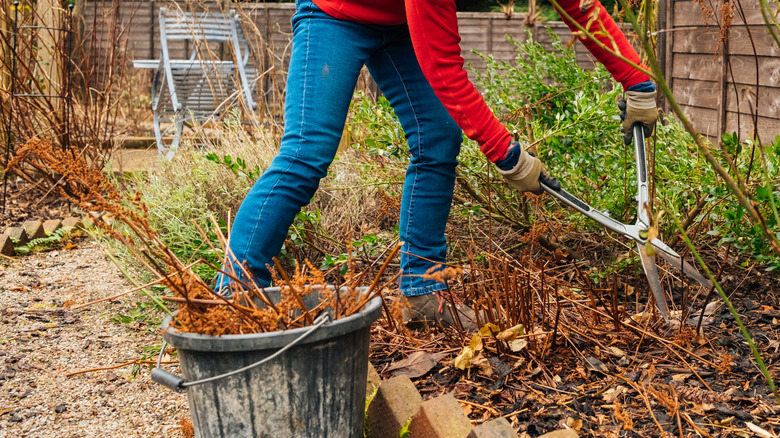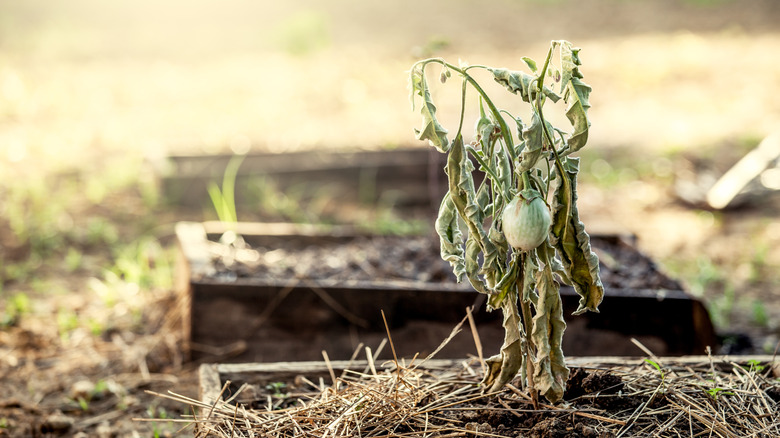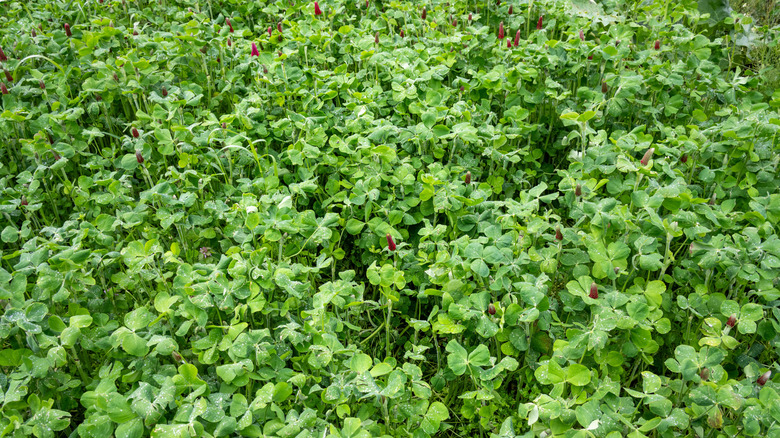Should You Dig Up Dead Vegetables At The End Of The Season Or Wait Until Spring?
Many gardeners at the end of the growing season often wonder whether they should dig up the dead vegetables from their gardens or wait until spring. On the one hand, leaving them in place sounds tempting, as when the dead vegetables, especially their roots, decompose, they will add organic matter to the soil. However, at the same time, that decaying matter can also serve as a perfect breeding and hiding ground for pathogenic plant viruses, bacteria, fungi, and more. So, what should you do?
Well, for most gardeners, it's best to clean up the dead vegetables at the end of the growing season. The reason for this is that many pathogens, diseases, and pests of vegetables can overwinter in the soil, surviving even the harshest of winters and causing trouble during the next growing season. Leaving dead vegetables in the ground only creates more safe spots for them to take shelter and make it through the winter.
Add digging up dead vegetables to your fall to-do list for the garden of your dreams next spring. Furthermore, a thorough clean-up in the fall gives you a fresh slate, allowing you to rethink what to plant and what not to plant, and plan crop rotation if needed.
When and what to dig up and leave in the vegetable garden
Start by performing a thorough assessment of your vegetable garden. If any of the vegetables have had problems with pests or diseases, do not leave any of their plant parts in the soil. Leaving them allows the same pests and diseases to attack your vegetables once more in the coming growing season. Also, with the end-of-season clean-up, perform a final round of weeding. This is important as any leftover weeds can go to seed and produce more weeds next season.
However, in some cases, a full clean-up might not be needed, and you can leave some materials until the spring. For instance, if you have perennial vegetables (aka those that you plant once and they come back to your garden on their own), and you are sure they have not been affected by any pest or disease issues, you can leave them in the ground. Remember that removing everything from the garden is also not a good idea, as it takes away the places where beneficial insects can take shelter and overwinter.
What to do after digging up your vegetable garden
In case you faced any issues with vegetable pests and diseases and had to dig up everything from your yard, you should still not leave the soil bare. Exposed soil is prone to compaction and sneaky weeds that will wreak havoc during the winter. Instead, add a cover crop after removing the dead vegetables from your garden in the fall. For instance, you can add crimson clover (Trifolium incarnatum), winter pea (Pisum sativum), or hairy vetch (Vicia villosa) to your beds after the fall clean-up.
These plants act as mulch that can help with water retention, add nitrogen to the soil for use by the next season's crops, and help control soil erosion. Furthermore, they can also help break up soil compaction and provide food and habitat for beneficial insects. And since they are all annual plants, you can just till them into the ground when spring comes, and plant your vegetables, and you should be good to go.


